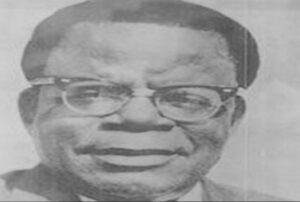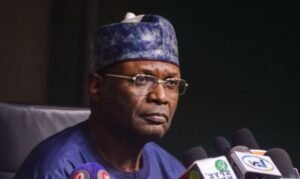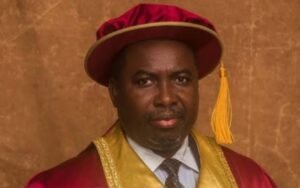The Independent National Electoral Commission (INEC), established in 1998, is the organization responsible for overseeing elections in Nigeria.
Before INEC, different electoral bodies existed at various times, such as the Electoral Commission of Nigeria (ECN) in 1958 and the Federal Electoral Commission (FEC) in 1960, which organized elections in the early years of Nigeria’s independence.
During military rule, different commissions managed elections, but many were dissolved after government changes.
In 1995, General Sani Abacha’s government created the National Electoral Commission of Nigeria, but it was later replaced by INEC in 1998 under General Abdulsalami Abubakar.
INEC successfully organized the 1999 elections that restored democracy in Nigeria.
Over the years, INEC has conducted multiple elections, facing challenges such as security issues and accusations of unfair practices.
READ ALSO: When Did Abuja Become The Capital Of Nigeria? (The Official Date)
List Of INEC Chairman From 1999 Till Date
| No | Name | Term Period |
|---|---|---|
| 1 | Eyo Esua | 1964 - 1966 |
| 2 | Michael Ani | 1976 - 1979 |
| 3 | Victor Ovie-Whiskey | 1980 - 1983 |
| 4 | Eme Awa | 1987 - 1989 |
| 5 | Humphrey Nwosu | 1989 - 1993 |
| 6 | Okon Uya | June 1993 - November 1993 |
| 7 | Sumner Dagogo-Jack | 1994 - 1998 |
| 8 | Ephraim Akpata | 1998 - 2000 |
| 9 | Abel Guobadia | 2000 - 2005 |
| 10 | Maurice Iwu | 2005 - 2010 |
| 11 | Attahiru Jega | 2010 - 2015 |
| 12 | Mahmood Yakubu | November 2015 - 2025 |
| 13 | Professor Joash Ojo Amupitan (SAN) | 2025 - Present |
The First Chairman Of INEC

Eyo Ita Esua was a Nigerian teacher and trade unionist who became the first chairman of Nigeria’s Federal Electoral Commission during the First Republic.
Born on January 14, 1901, he was a schoolmaster and a founding member of the Nigeria Union of Teachers (NUT).
He served as the first full-time general secretary of the NUT from 1943 until his retirement in 1964.
Esua was from the Efik ethnic group in Calabar and was well known for his dedication and integrity.
As the head of the Federal Electoral Commission under Prime Minister Abubakar Tafawa Balewa’s government, Esua was responsible for organizing the 1964 general elections.
However, the election was highly controversial. Two members of the commission disagreed with Esua and resigned in protest.
The opposition parties also criticized the process, accusing the government of election rigging and manipulation.
In 1965, Esua also conducted the Western Region elections, which became one of the most violent and disputed elections in Nigeria’s history.
The opposition party, the United Party Grand Alliance (UPGA), strongly rejected the results.
However, the electoral crisis, along with widespread political unrest, contributed to the military coup of January 1966.
The coup, led by Major General Johnson Aguiyi-Ironsi, ended Nigeria’s First Republic before Esua passed away on December 6, 1973.
READ ALSO: The Yoruba People Of Nigeria: A Complete Guide To Their History, Culture, Traditions And Facts
Former Chairman Of INEC

Mahmood Yakubu is a Nigerian academic and the former chairman of the Independent National Electoral Commission (INEC).
He was appointed to this position on October 21, 2015, by President Muhammadu Buhari, taken over from Amina Zakari, who had served as acting chairman. Mahmood Yakubu was born in Bauchi State, Northern Nigeria, in 1962.
He completed his primary education at Kobi Primary School and then attended Government Teachers College in Toro for his secondary education.
He also studied history at the University of Sokoto, now called Usmanu Danfodiyo University, where he became the first person from Northern Nigeria to graduate with a first-class degree in history.
After completing his undergraduate studies, he furthered his education at Wolfson College, Cambridge, and he obtained a master’s degree in international relations in 1987.
He later earned a doctorate in Nigerian history from the University of Oxford in 1991. His postgraduate studies were supported by scholarships from the Bauchi State Government, as well as the Overseas Research Scholarship and the Commonwealth Scholarship.
Before he was appointed INEC chairman, Yakubu was a lecturer and expert in guerrilla warfare. He became a professor of political history and international studies at the Nigerian Defence Academy.
He was also appointed as the executive secretary of the Tertiary Education Trust Fund in 2007 by then-President Umaru Musa Yar’Adua. During his time there, he established the National Book Development Fund, which supported professional journals and academic research.
In 2014, he was the Assistant Secretary of Finance and Administration at the National Conference. He was also honored with a fellowship at the Nigerian Institute of Public Relations in 2013.
Yakubu has written several books on Nigerian history and politics. His works include Crisis and Conflict Management in Nigeria Since 1980, Western Education in Northern Nigeria: Challenges and Strategies, and Emirs and Politicians: Reform, Reaction, and Recrimination in Northern Nigeria, 1950-1966.
READ ALSO: What Does A Political Impeachment Mean In Nigeria?
Who Is The Current Chairman Of INEC?

Professor Joash Ojo Amupitan (SAN) has been appointed as the new Chairman of the Independent National Electoral Commission (INEC).
His appointment was approved by the National Council of State on Thursday, following the end of Professor Mahmood Yakubu’s 10-year tenure.
President Bola Tinubu nominated Prof. Amupitan, describing him as apolitical and a man of integrity.
The President also noted that Amupitan is the first person from Kogi State to be nominated for the position.
Prof. Amupitan is 58 years old and comes from Ayetoro Gbede in Ijumu Local Government Area of Kogi State, in North-Central Nigeria.
He is the first person from Kogi State to be appointed to this position. Prof. Amupitan is a Professor of Law at the University of Jos. He has held many top positions in the university, including Dean of the Faculty of Law and Deputy Vice-Chancellor (Administration).
He also served as the Pro-Chancellor and Chairman of the Governing Council of Joseph Ayo Babalola University in Osun State.
He became a Senior Advocate of Nigeria (SAN) in 2014 and has written several books on law.
Married with four children, he is an expert in Company Law, Evidence Law, Corporate Governance, and Privatisation Law.

